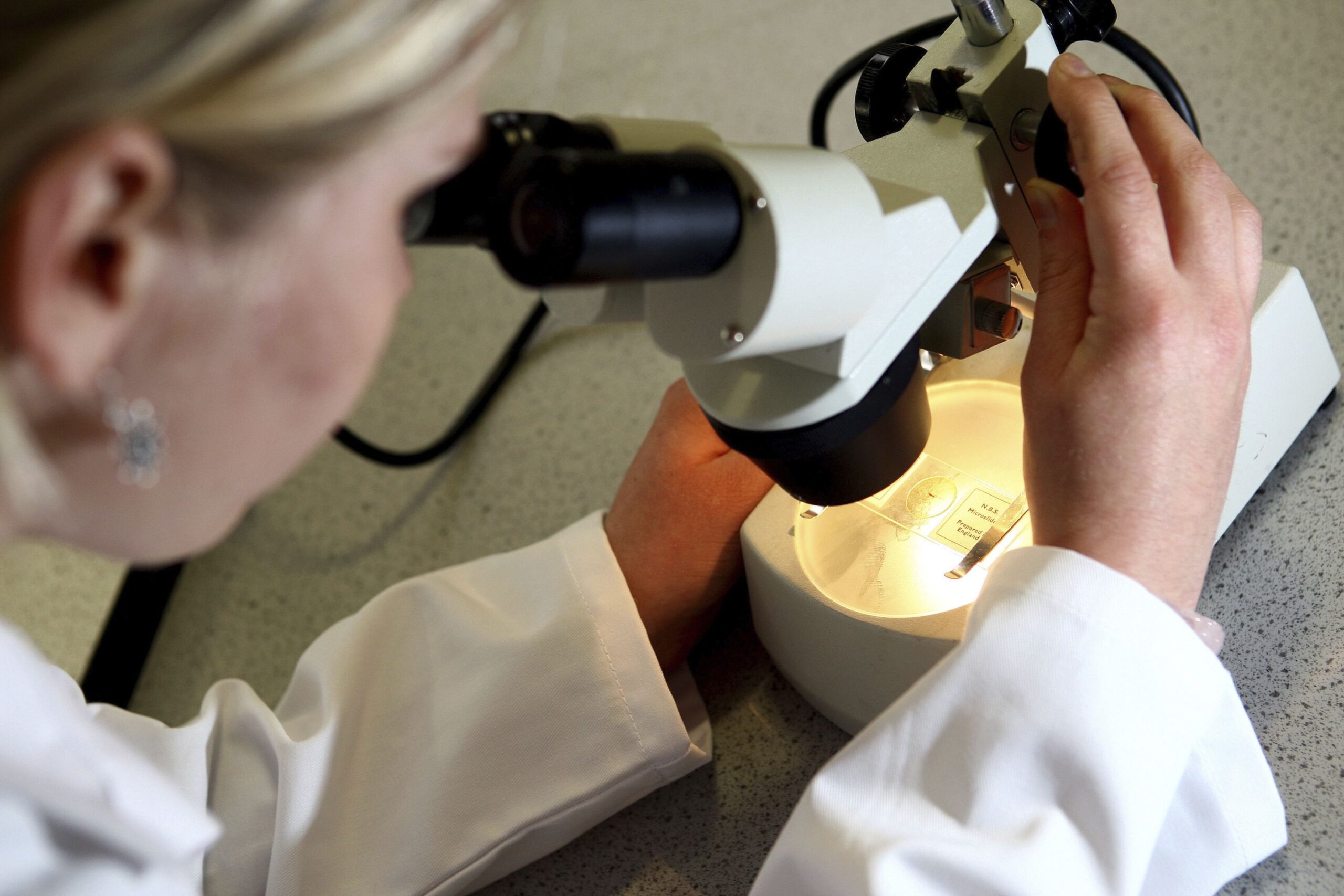After cuts to research funding, Trump pledges millions for pediatric cancer initiative involving AI

By Jen Christensen, CNN
(CNN) — President Donald Trump signed an executive order Tuesday that the White House says will use artificial intelligence to transform the way scientists fight childhood cancer.
However, the move comes amid cuts to hundreds of millions of dollars in science research grants and proposed cuts to the budget of the nation’s primary agency for cancer research and training – moves that experts say could mean dramatic losses in cancer treatments.
“We’re going to defeat childhood cancer once and for all,” Trump said Tuesday in the Oval Office, accompanied by children who have had cancer. “I’m thrilled to sign a very historic executive order to massively accelerate pediatric cancer research and harness the extraordinary potential of artificial intelligence to fight this terrible disease.”
During the announcement, Trump turned to the children standing to the left of his desk and told them, “You’re all going to be better very soon.”
Cancer rates among children in the US have been increasing since the 1970s, studies show. The cancer mortality rate for children has fallen more than 50% since 1975, but it is still the leading cause of disease-related death in kids. Pediatric cancer research has been historically underfunded, the Children’s Cancer Foundation says, making up less than 10% of the federal cancer research budget.
The new executive order doubles the US National Institutes of Health’s investment in a childhood cancer data initiative, launched during Trump’s first term, with an additional $50 million.
The initiative gathers data from every child, adolescent and young adult diagnosed with cancer in the US, regardless of where in the nation they receive care, in an effort to help scientists better understand the nature of childhood cancers. Part of the new investment will go toward grants for scientists working on projects that apply AI to childhood cancer research.
The White House said the executive order guarantees that AI will be integrated into US Department of Health and Human Services systems for sharing health information among health care systems, organizations and patients.
The executive order also directs the Make America Healthy Again Commission within HHS to work with the White House’s Office of Science and Technology Policy to harness AI to improve childhood cancer clinical trials, sharpen diagnoses and fine-tune treatments so they won’t have to be so hard on a child’s body.
“The treatments these little kids undergo involve therapies like chemo and radiation that put them through hell,” NIH Director Dr. Jay Bhattacharya said earlier Tuesday. “Even though 85% will be cured, the therapies themselves can cause health problems if these kids age into adulthood. Nearly 60% of childhood cancer survivors experience severe life-threatening complications in adulthood.”
Bhattacharya noted that the United States’ investment in research has vastly improved outcomes for children with cancer. But the Trump administration has also cut hundreds of scientists from the federal payroll and canceled several hundreds of millions of dollars in science grants, including those that fund pediatric cancer research.
Those cuts have left some families who had been hoping to join trials of new treatments scrambling to find other options. For example, the Pediatric Brain Tumor Consortium – a national network of doctors, scientists and hospitals that provide children access to experimental treatments through clinical trials, which has been conducting pediatric cancer research for 25 years – learned in August that it would no longer have federal funding.
Although budget negotiations are still underway, the Trump administration initially proposed cutting research initiatives at the National Cancer Institute by more than 37%.
Mark Fleury, policy principal on emerging science and advocacy at the American Cancer Society, said his organization has consistently advocated for additional federal funding to advance the fight against cancer.
“National Institutes of Health and the National Cancer Institute, they really fund important research that wouldn’t get funded otherwise. Oftentimes, this is basic research that is too far removed from a product that industry isn’t going to fund, but nonetheless industry sort of benefits from the research funding,” Fleury said.
Even a 10% cut in NIH funding would result in 30 fewer drugs developed within 30 years and an average of two fewer per year after that, he said, citing the Congressional Budget Office. “And that’s just the 10% cut,” Fleury said.
It’s unclear how the new AI initiative will change research going forward, but the families at Tuesday’s signing expressed their eagerness. Joshua Armstrong, whose daughter Laurel was diagnosed with leukemia at age 2, told Trump on Tuesday that he’s often wondered why there aren’t better treatments available for kids with cancer. He said the executive order gave hope to him and other families of children with cancer.
“Doctors are going to be able to get better treatments faster to patients like Laurel,” Armstrong said.
The-CNN-Wire
™ & © 2025 Cable News Network, Inc., a Warner Bros. Discovery Company. All rights reserved.
